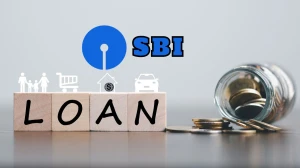
Types of Mortgage Loans, How to Choose the Right Type of Mortgage Loan?
There are various types of mortgage loans to cater to different homebuyers' needs, including conventional loans for those with good credit, jumbo loans for more expensive homes, and government-backed loans for those with lower credit scores.
Published Jul 13, 2023 | Updated Nov 22, 2023 | 📖 9 min read
On This Page
What is a Mortgage Loan?
A mortgage is a specialized loan designed for individuals who want to purchase or maintain real estate, such as a house or land. In this arrangement, the borrower enters into an agreement with a lender, committing to repay the borrowed amount over time. These repayments typically occur in regular installments, which consist of both the principal amount borrowed and interest charges.
Importantly, the property being financed serves as collateral, acting as security for the loan. If the borrower fails to meet the repayment terms, the lender may take possession of the property through a legal process known as foreclosure.
To secure a mortgage, borrowers must apply through a chosen lender and meet specific eligibility criteria, which often include considerations like minimum credit scores and down payments. Mortgage applications undergo a comprehensive underwriting process, evaluating the borrower's financial stability and ability to repay the loan.
The mortgage market offers various types of loans tailored to individual needs, such as conventional mortgages or fixed-rate loans, providing flexibility for borrowers to choose the option that best suits their financial circumstances and goals.
Related >> What is Mortgage Life Insurance Protection?
Types of Mortgage Loans
When it comes to buying a home, there are different types of loans to choose from. Whether you have a good credit score, are eyeing a more expensive home, or have minimal cash for a down payment, there's a mortgage option for you.
From stable fixed-rate mortgages to adjustable ones suited for short-term plans, understanding these types can help you make the right choice for your home-buying journey. There are different types of home loans to suit the needs of various home buyers:
- Conventional Loan for Borrowers with good credit scores.
- Jumbo Loan for Borrowers with excellent credit looking to buy a more expensive home.
- Government-Backed Loan for Borrowers with lower credit scores and minimal cash for a down payment.
- Fixed-Rate Mortgage for those who prefer a predictable, set monthly payment for the duration of the loan.
- Adjustable-Rate Mortgage for those who not planning to stay in the home for an extended period, prefer lower payments in the short term, and are comfortable with possibly paying more in the future.
Conventional Loan
Conventional loans, the most widely sought-after type of mortgage, are divided into two categories: conforming and non-conforming. A conforming loan adheres to the standards set by the Federal Housing Finance Agency (FHFA), covering aspects such as credit, debt, and loan size. Meeting FHFA standards allows a conventional loan to be purchased by government-sponsored enterprises (GSEs) like Fannie Mae and Freddie Mac.
These entities acquire loans from lenders, providing lenders with more capital to facilitate additional mortgages for a broader range of borrowers. On the other hand, non-conforming loans fail to meet one or more FHFA standards, with jumbo loans being a common example. Jumbo loans exceed the conforming loan limit and cannot be acquired by GSEs, making them a riskier option for lenders.
Jumbo Loan
Jumbo mortgages are home loans that exceed the conforming loan limits set by the Federal Housing Finance Agency (FHFA). In 2023, this implies any loan amount surpassing $726,200, or $1,089,300 in regions with higher costs. These loans offer certain advantages, such as the ability to finance more expensive homes, competitive interest rates comparable to conforming loans, and sometimes being the only viable option in areas with elevated home values.
However, they also come with drawbacks, including limited availability with certain lenders, higher credit score requirements (often a minimum of 700), and a higher down payment requirement, typically ranging from 10% to 20%.
MarketsHost, the go-to destination for Mortgage seekers, offers an extensive selection of mortgage options. Our user-friendly platform makes it a breeze to find the mortgage that aligns with your goals.
Government-Backed Loan
Government-backed loans are facilitated by the U.S. government to enhance accessibility to homeownership for a broader segment of the population. Three primary types of government-backed mortgages include FHA loans, VA loans, and USDA loans. FHA loans, insured by the Federal Housing Administration, accommodate borrowers with credit scores as low as 580 and offer a 3.5 percent down payment option.
However, FHA loans entail mortgage insurance premiums to protect lenders against defaults. VA loans, guaranteed by the U.S. Department of Veterans Affairs, are exclusive to eligible military members and their spouses, featuring no minimum down payment or credit score requirement but requiring a closing funding fee.
USDA loans, guaranteed by the U.S. Department of Agriculture, assist moderate- to low-income borrowers in rural areas without imposing credit score or down payment prerequisites, but they do involve guarantee fees.
Fixed-Rate Mortgage
A fixed-rate mortgage is characterized by a consistent interest rate throughout the loan's duration, ensuring a stable monthly mortgage payment that encompasses both the loan principal and interest. These mortgages commonly span 15 or 30 years, although certain lenders provide flexibility in term lengths.
The key advantage lies in the predictability of a fixed monthly payment, facilitating easier budgeting for homeowners. However, fixed-rate mortgages may initially have higher interest rates compared to the introductory rates of adjustable-rate loans, necessitating refinancing for those seeking a lower rate.
Adjustable-Rate Mortgage
An adjustable-rate mortgage (ARM) differs from fixed-rate loans by featuring interest rates that fluctuate over time. Typically, ARMs offer a lower, fixed introductory rate for an initial period. Following this period, the rate adjusts, either upward or downward, at predetermined intervals for the remainder of the loan term. For instance, a 5/6 ARM maintains a fixed rate for the initial five years, after which it changes semi-annually based on economic conditions until the loan is repaid.
The advantage lies in lower introductory rates and potential savings if prevailing interest rates decrease. However, the ongoing risk of higher monthly payments and the challenge of budget planning due to rate changes are notable drawbacks.
What are the Other Types of Home Loans?
When it comes to getting a home loan, there's more than one type to choose from. Besides the common ones, there are various other options, each designed for specific situations or preferences. Let's explore some alternative home loan types that might suit your needs.
Beyond the common mortgage types, there are several other options to consider when seeking a home loan:
Interest-Only Mortgages
With an interest-only mortgage, borrowers make payments covering only interest for a specified period, usually five or seven years, followed by payments covering both principal and interest. This option may be suitable for those planning to sell or refinance or those expecting to manage higher monthly payments later.
Balloon Mortgages
Balloon mortgages require a large payment at the end of the loan term. Payments are based on a 30-year term but only for a short time, like seven years. This option suits those with stable financial resources to manage a large balloon payment at the end of the term.
Construction Loans
If you plan to build a home, a construction loan, particularly a construction-to-permanent loan, can be a suitable financing option. These short-term loans are ideal for applicants capable of providing a higher down payment and demonstrating the ability to afford monthly payments.
Portfolio Loans
Some lenders choose to keep loans in their portfolio rather than selling them to investors. These loans, held "on the books," may have more flexible requirements as lenders are not bound by certain standards.
Renovation Mortgages
For homes requiring significant renovations, renovation loans like FHA 203(k) loans combine the costs of purchasing and renovation into one mortgage.
Piggyback Loans
Also known as an 80/10/10 loan, a piggyback loan involves two loans: one for 80 percent of the home price and another for 10 percent. The remaining 10 percent is covered by a down payment. Designed to avoid mortgage insurance, this option incurs two sets of closing costs and is best for those who can save money using it.
Related >> How Much House Can I Afford?
How Does Mortgage Loan Work?
A mortgage is a loan that helps people or businesses purchase real estate by paying a portion of the property's cost upfront and repaying the rest over several years with added interest. The regular payments remain consistent, but the proportion of principal (the original loan amount) to interest changes over time.
This repayment process, typically over 15 or 30 years, allows the borrower to eventually own the property outright. Mortgages also serve as a claim or lien on the property, giving the lender the right to foreclose and sell the property if the borrower fails to make payments, ensuring the lender's interest in the property is protected.
How to Choose the Right Type of Mortgage Loan?
Selecting the best mortgage type involves considering your credit, financial situation, and objectives, along with meeting specific eligibility criteria. For instance, VA loans are available only to military service members and their spouses.
If you intend to sell the home within a few years, an Adjustable-Rate Mortgage (ARM) might be beneficial for saving on interest. To make an informed decision, calculate your Debt-to-Income (DTI) ratio, and assess your credit score to understand your financial standing.
More on >> How to Choose the Best Mortgage?
How to Compare Mortgages?
When comparing mortgages, you can explore options beyond traditional sources like banks, including online lenders such as Better, loanDepot, Rocket Mortgage, and SoFi. Use an online mortgage calculator to estimate monthly payments based on factors like mortgage type, interest rate, and your planned down payment. This tool helps you assess the affordability of different properties.
Apart from the principal and interest, your lender might establish an escrow account to cover property taxes, homeowners insurance, and other expenses, contributing to your monthly mortgage payment. If your down payment is less than 20%, your lender may require private mortgage insurance (PMI), adding another monthly cost.
How Long Will Mortgage Loan Last?
The most common mortgage term in the U.S. is 30 years, but mortgage terms can vary and be as short as 10 years. While many people won't keep the original loan for the full term, as the average mortgage length is under 10 years, the 30-year option remains popular due to factors like current mortgage rates, monthly payment considerations, the type of home being purchased, and the borrower's financial goals.
Homeowners often refinance or buy a new home before the term is completed. According to the National Association of REALTORS® (NAR), buyers typically expect to stay in the purchased home for a median of 12 years, influencing the choice of mortgage terms
Different Types of Mortgage Loans - FAQs
1. What are the different types of mortgage loans available for home buyers?
Types of mortgage loans for home buyers include conventional loans, jumbo loans, government-insured loans, fixed-rate mortgages, and adjustable-rate mortgages.
2. What is a fixed-rate mortgage?
A fixed-rate mortgage is a type of loan where the interest rate remains constant throughout the loan term. This means your monthly payments will also remain the same, providing stability and predictability.
3. How does an adjustable-rate mortgage (ARM) work?
With an adjustable-rate mortgage, the interest rate is initially fixed for a certain period, typically 5, 7, or 10 years.
4. What is an FHA loan?
An FHA loan is a mortgage loan insured by the Federal Housing Administration (FHA). These loans are designed for low-to-moderate-income borrowers and offer more flexible qualification requirements and lower down payment options.
5. What is a VA loan?
A VA loan is a mortgage loan guaranteed by the U.S. Department of Veterans Affairs. These loans are available to eligible veterans, active-duty service members, and surviving spouses, offering favorable terms, such as no down payment and competitive interest rates.




